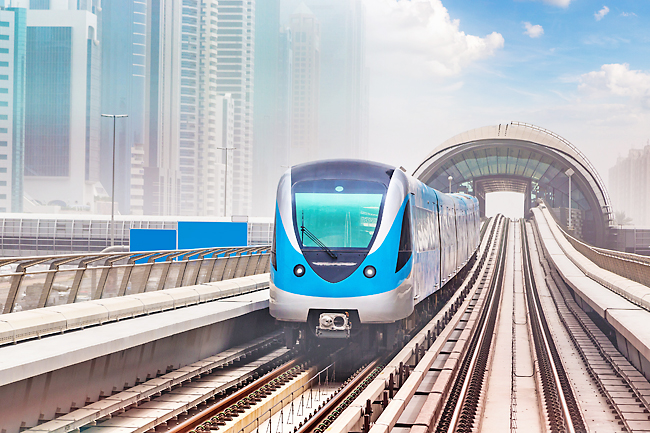Danial Norjidi
During the fourth Ministerial Conference on Transport recently hosted by the United Nations (UN) Economic and Social Commission for Asia and the Pacific (ESCAP), a new regional action programme for 2022 to 2026 and a ministerial declaration were adopted.
The ESCAP is an inter-governmental platform in the Asia-Pacific region with 53 members, including Brunei Darussalam, as well as nine associate members.
The fourth Ministerial Conference on Transport was convened in Bangkok, Thailand via video conference from December 14-17, 2021 and featured a rethinking of transport priorities in the region towards more affordable, accessible, reliable, safe and sustainable mobility.
According to an ESCAP statement pertaining to the conference, Asian and Pacific countries adopted “a potentially transformative agenda for transport that would enable greener, smarter and more resilient ways to move people and goods around the region and across the world”.
It was shared that transport ministers agreed to the new Regional Action Programme for Sustainable Transport Development in Asia and the Pacific (2022-2026) (RAP), which provides concerted action to address rising freight and passenger volumes and rapid urbanisation with high motorisation rates, as well as encourages accelerated use of digital technologies, deployment of smart transport systems, and transitioning towards more inclusive and low-carbon transport systems.

In addition, the Ministerial Declaration on Sustainable Transport Development in Asia and the Pacific “also calls upon all stakeholders to further intensify efforts to address the region’s lagging sustainability performance and enhance resilience to future crises after nearly two years of disruption to supply chains and transport connectivity caused by the COVID-19 pandemic”.
The statement added that the declaration and RAP are both fully aligned with the 2030 Agenda for Sustainable Development.
The RAP is described as being “enshrined in the vision of competitive, environmentally sustainable and inclusive transport in Asia and the Pacific”, and “seeks cross-cutting impacts and mainstreams common elements across three overarching objectives, which are directly linked to the sustainable development goals (SDGs)”.
Specifically, the programme is geared towards advancing: efficient and resilient transport and logistics networks and mobility for economic growth; environmentally sustainable transport systems and services; safe and inclusive transport and mobility.
It states that, under these three overarching objectives, the programme clusters seven thematic areas of work, namely: rational land transport connectivity and logistics; maritime and interregional transport connectivity; digitalisation of transport; low carbon mobility and logistics; urban transport; road safety; and inclusive transport and mobility.
The ministerial conference featured a rethinking of transport priorities in the region towards more affordable, accessible, reliable, safe and sustainable mobility. Ministers also welcomed national and regional efforts to preserve and enhance transport connectivity during the pandemic; endorsed the Transport Research and Education Network; agreed to work towards a harmonised legal framework for multimodal transport; and encouraged a regional approach on sustainable multimodal freight transport.
Meanwhile, in the Ministerial Declaration, ministers of transport and representatives of the members and associate members of the ESCAP attending the conference adopted the RAP and endorsed the Transport Research and Education Network.
According to the ESCAP website, the establishment of a Transport Research and Education Network in Asia and the Pacific is a project implemented in 2020-2021 as part of ESCAP’s programme of work and in collaboration with the Russian University on Transport (MIIT), “to support collaborative development and exchange of training materials; to facilitate the dissemination of information and data and to strengthen evidence-based policy development”.
The declaration also mentions that ministers decided to work towards a harmonised legal framework for multimodal transport in Asia and the Pacific, including in the context of the implementation of the Integovernmental Agreement on Dry Ports, as defined by the agreement.
The declaration encouraged a regional approach on sustainable multimodal freight transport which provides coherence to the existing initiatives, creates synergies through partnerships and ensures high-level political affirmation with regard to sustainable multimodal freight transport.
In addition, ministers welcomed the national and regional efforts to preserve and enhance transport connectivity in the context of the COVID-19 pandemic by using seamless and contactless solutions, such as electronic data exchange and pursuing regional and sectoral cooperation on the transport response and recovery strategies.
Also among the points shared in the declaration was that it had been decided to convene a ministerial conference on transport in 2026 to evaluate the implementation of the RAP and to consider a future programme of work.
UN ESCAP Under-Secretary-General and Executive Secretary Armida Salsiah Alisjahbana said, “By anchoring regional transport and connectivity in sustainability, there is a real opportunity to transform transport systems and services to follow a low-carbon development path, increase the use of clean energy, and adopt innovations and emerging smart transport technologies to improve environmental sustainability.”
Additionally, on the sidelines of the conference, ESCAP launched its flagship Review of Transport Developments in Asia and the Pacific 2021, which assesses the effects of COVID-19 on urban transport systems.
As the statement explained, the review provides recommendations on how urban transport system policies and plans can integrate the three key elements of environmental sustainability, social inclusiveness and resilience. It also presents the results of a modeling exercise on future scenarios, which found that energy efficiency and electric vehicle scenarios had the most significant impact on reducing emissions.






